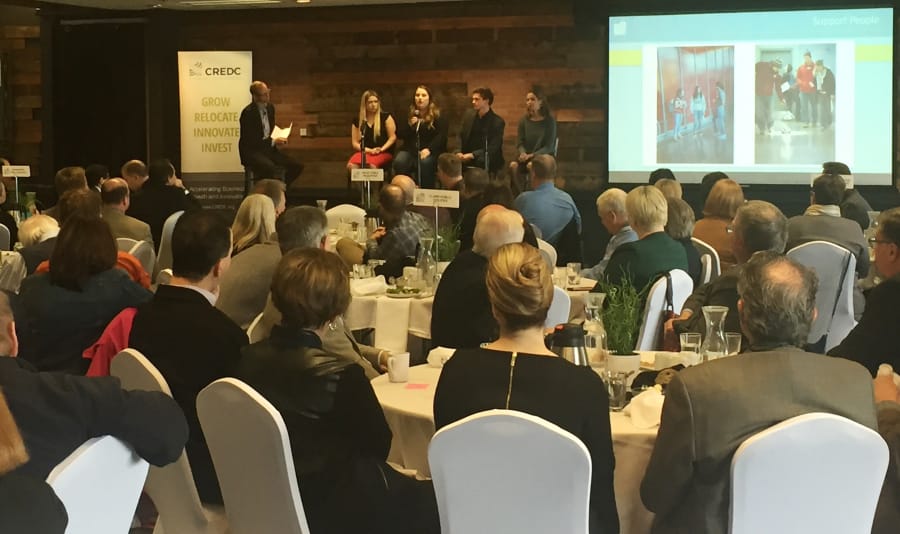A group of business and civic leaders tried to navigate the intersection of school and work at Tuesday’s quarterly luncheon of the Columbia River Economic Development Council.
The event included a panel discussion featuring four young Clark County residents who are making, or have just made, the journey. Along with Evergreen Public Schools Superintendent John Steach, they addressed the “Support People” piece of the economic development group’s 20-year mission.
Some gaps in that support were evident.
“The type of job I have now, I never really knew existed,” said Breanna Clevidence, who works at SEH America growing silicon crystal seeds that eventually become microchips. When she was in high school a few years ago, she said, the teachers tended to point students toward college, because that was a path they had taken.
But for her, college wasn’t an option. She took some aptitude tests — they suggested she should tend bar — but it was a school-business partnership that brought her to SEH. Today she’s in charge of those student interns, and is hoping to become a production lead and even enroll at Clark College.
Another student, Andrey Popov, extolled the value of partnerships between education and business. After high school, he was quick to find a job so that he could marry his girlfriend. He wanted to become a mechanical engineer and knew there were many local employment opportunities. He ended up with Columbia Machine, which supported him with variable schedules and tuition reimbursement as he went to college full time and worked full time. As his knowledge grew, he advanced at work. A few days ago, he was promoted to that coveted mechanical engineering job because in May he will receive his bachelor’s degree from Washington State University Vancouver.
While Clevidence and Popov are success stories, Steach talked about some of the difficulties educators face today to give all students a chance to succeed. In the Evergreen district, students tend to be poorer than they were 15 years ago. For the third year in a row, Evergreen counts 1,000 homeless students, and many others rely on family resource centers, food pantries, dinner programs and other social and support services that didn’t exist just a few years ago.
“We don’t just focus on academics anymore,” said Steach. In other words, to reach the CREDC’s goal to “Support People,” Steach and the panelists were in perfect agreement:
“We can’t do this alone,” he said.




